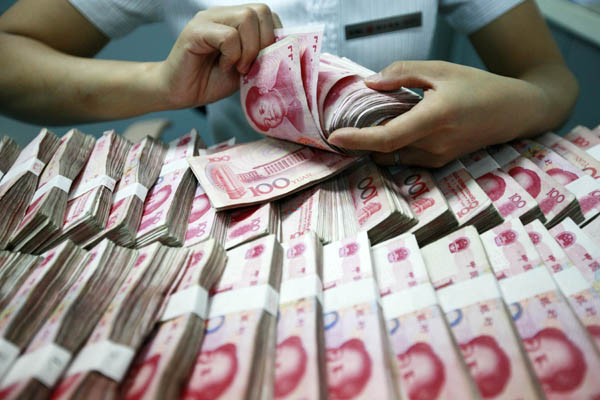

Opening China's capital account may trigger net portfolio outflows as holders of large domestic savings seek to diversify abroad, said researchers at the International Monetary Fund in a working paper.
Capital-account opening in China will likely be followed by substantial gross portfolio flows as global and domestic holdings adjust, said Tamim Bayoumi and Franziska Ohnsorge in the paper, issued this month.
 |
|
The State Administration of Foreign Exchange has said qualified domestic institutional investors that are investing abroad on behalf of their clients could use whatever foreign currencies they prefer.Xie Zhengyi / for China Daily |
"During the adjustment period, there may be net outflows from both equity and bond markets as domestic investors seek to diversify. ... This is in contrast to what would be expected if, say, India opened its capital account."
It said such net outflows of portfolio investment could offset pressures for reserve accumulation from net foreign direct investment or other investment inflows or current-account surpluses for several years to come.
China has been stepping up its pursuit of market-oriented financial reform and increasing the convertibility of the yuan under the capital account.
Just this past Tuesday, the nation loosened rules to allow domestic investors to put funds into overseas securities more easily.
The State Administration of Foreign Exchange said qualified domestic institutional investors that are investing abroad on behalf of their clients could use whatever foreign currencies they prefer. The application process for foreign exchange quotas would also be simplified.
Capital-account liberalization may be followed by an adjustment of Chinese assets abroad on the order of 15 to 25 percent of GDP, with a smaller adjustment for foreign assets in China on the order of 2 to 10 percent of GDP, the IMF said.
The paper said capital-account liberalization is likely to proceed gradually, and the net outflows the model predicts for China could well be spread out over several years. Over this period, the outflows would partially offset other balance of payments inflows.
The IMF's World Economic Outlook Update, issued in July, projected a widening current account surplus to 4.1 percent of GDP by 2018 and continued net FDI inflows.
As a result, reserve accumulation is expected to continue at $580 billion annually from 2013 to 2018, it said.
China reported a $1.6 billion deficit under its capital account in the second quarter, according to SAFE data.
It was the first capital-account deficit since the third quarter of last year, when the gap was $51.7 billion. In the first quarter of 2013, China recorded a capital-account surplus of $90.1 billion.
Louis Kuijs, chief China economist at the Royal Bank of Scotland, said Chinese companies that have been using arbitrage opportunities available to them as a result of the internationalization of the yuan have more to do with the capital outflows of recent years than international funds.
"These apparent outflows were in part unwound in the first half of 2013 by apparent net financial inflows, in large part again carried out by Chinese companies."
The IMF paper added that the size of the Chinese financial markets may be overstated by aggregate market capitalization and outstanding debt.
Nontradable shares account for about one-quarter of equity market capitalization. Bond market debt may have substituted for bank lending, since almost half of the outstanding bonds are held by banks.
"Once the equity and bond market sizes are adjusted for these two factors, the predicted net accumulation of portfolio assets would narrow to 4 to 8 percent of GDP," the IMF said.